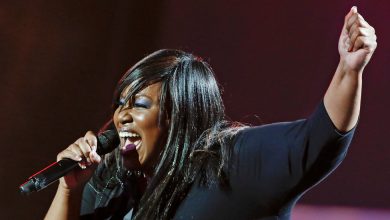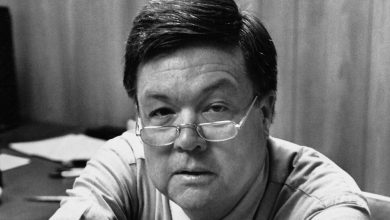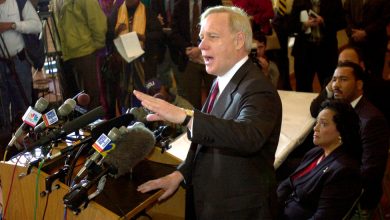Victoria Azarenka Dropped From Ukraine Aid Event Before U.S. Open

The U.S. Open’s attempt to show that sports could help build a bridge to peace in a time of war suffered a major blow Wednesday when the tournament was forced to drop Victoria Azarenka of Belarus from participating in an exhibition to raise money for relief efforts in Ukraine just hours before its start.
The move came after players from Ukraine complained about Azarenka’s participation in the Tennis Plays for Peace Exhibition set for Wednesday night at the U.S.T.A. Billie Jean King National Tennis Center, where the U.S. Open will begin next week.
“In the last 24 hours, after careful consideration and dialogue with all parties involved, Victoria Azarenka will not be participating in our Tennis Plays for Peace Exhibition this evening,” the United States Tennis Association announced in a statement. “Vika is a strong player leader, and we appreciate her willingness to participate. Given the sensitivities to Ukrainian players, and the ongoing conflict, we believe this is the right course of action for us.”
Azarenka could not immediately be reached for comment.
The exhibition will include a roster of some of the game’s biggest stars, including Rafael Nadal, Coco Gauff, Iga Swiatek and John McEnroe. It is taking place on Ukraine’s Independence Day and the six-month anniversary of a war that seemingly has no end in sight.
When the exhibition was announced earlier this month, Azarenka’s planned participation was seen as a significant statement. An overwhelming majority of athletes from Russia and Belarus, which has served as a staging ground for the Russian President Vladimir V. Putin’s invasion of Ukraine, has resisted speaking out against the war or expressing any sympathy for victims in Ukraine for a variety of reasons. Those can include support for the war or fear for their safety or that of their relatives who still live in their countries even if the players do not.
Stacey Allaster, the U.S. Open tournament director, said she had called Azarenka, the former world No. 1, and asked her to participate in the event, which is kicking off a $2 million fund-raising campaign, when it was still in its planning stages. “It was a quick response,” Allaster said of her conversation with Azarenka, 33, whom she has known for more than 15 years. “She said, ‘This is a player choice, and I want to play.’”
Azarenka, a leader in the WTA, had been highly critical of Wimbledon and Britain’s Lawn Tennis Association, which in April barred players from Russia and Belarus from playing in the annual tournaments in England earlier this year.
Azarenka now largely lives in the United States but for years had a friendly relationship with President Aleksandr G. Lukashenko of Belarus, the authoritarian leader who has ruled the country since 1994 and has appeared with Azarenka on multiple occasions.
During the Citi Open in Washington, D.C., earlier this month, Azarenka told Tennis.com that Wimbledon was “a big opportunity to show how sports can unite.”
“I think we missed that opportunity, but I hope we can still show it,” she said.
But with their country under attack and their relatives’ lives in danger, players from Ukraine are not feeling any desire to show a sense of unity with players from Russia and Belarus.
The International Tennis Federation, the men’s and women’s professional tours and the other three Grand Slam tournaments have barred Russian and Belarusian teams from competitions and prohibit players from those countries from playing under their flags.
But the locker rooms and other common spaces at tournaments continue to be places of tension. Players from Ukraine, including Dayana Yastremska and Lesia Tsurenko, have spoken about their discomfort with being around Russian and Belarusian players, some of whom, they assume, support Putin. They have said Russian players have made little effort to reach out to them to express empathy for what they are experiencing.
The lone exception has been Daria Kasatkina, Russia’s highest-ranked women’s singles player, who became the first Russian in tennis to openly criticize the war, a move that could land her in trouble with her home country.
Speaking with a Russian blogger earlier this summer, Kasatkina described the war as “a full-blown nightmare.” Kasatkina, 25, who goes by Dasha, said she wanted to train with and play against players “who don’t have to worry about being bombed,” according to the subtitles of the video, which circulated on Twitter.
She expressed empathy for Ukrainian players who had been forced to leave their homes and search for tennis academies in Western Europe in order to train. “I can’t imagine what it’s like to have no home,” she said.



